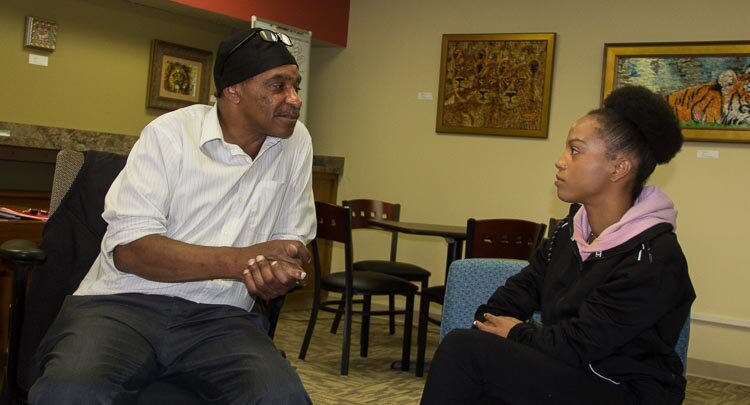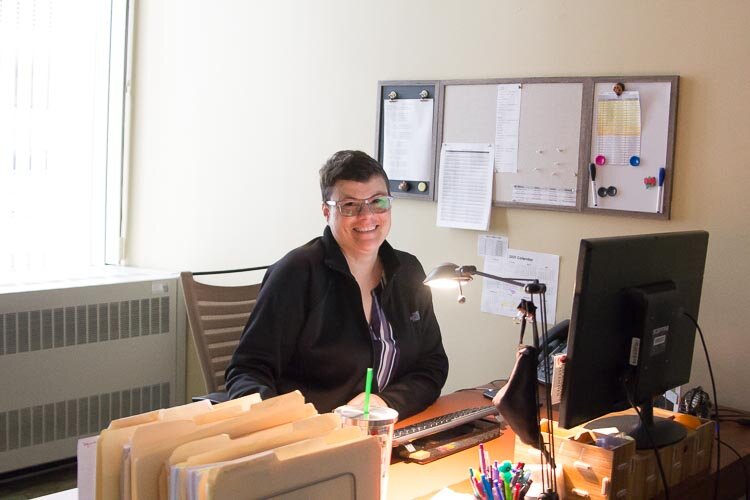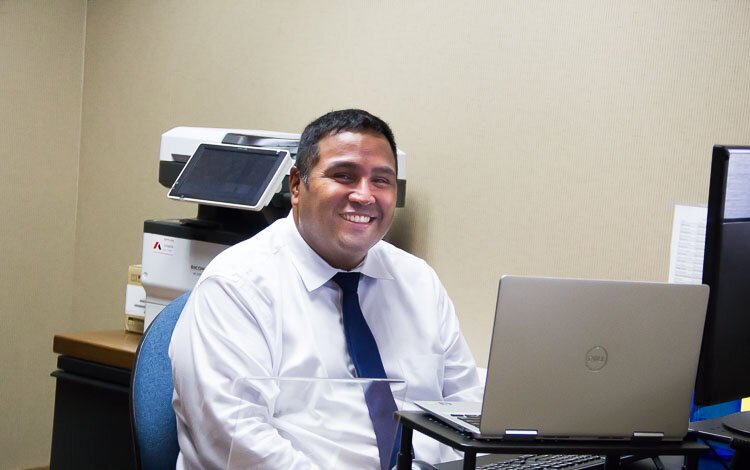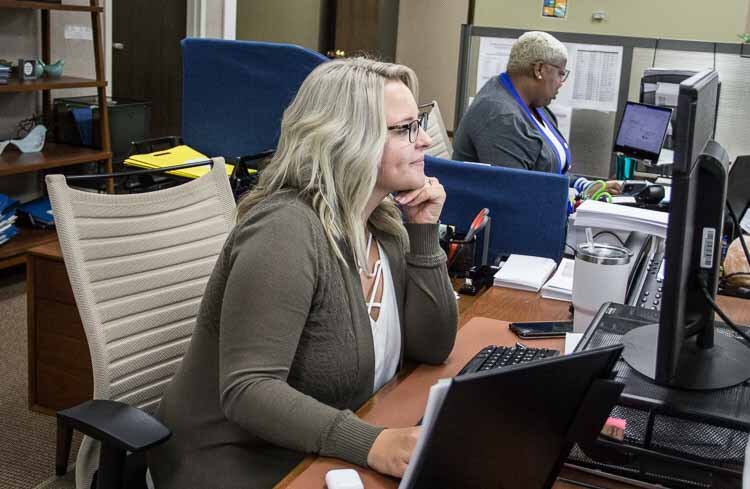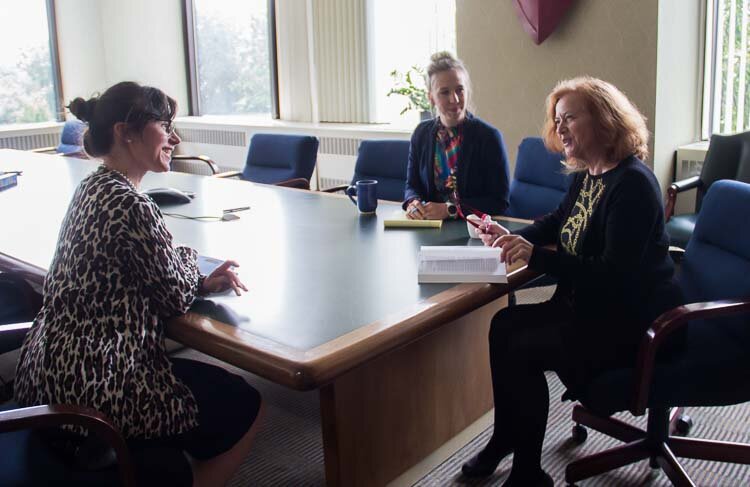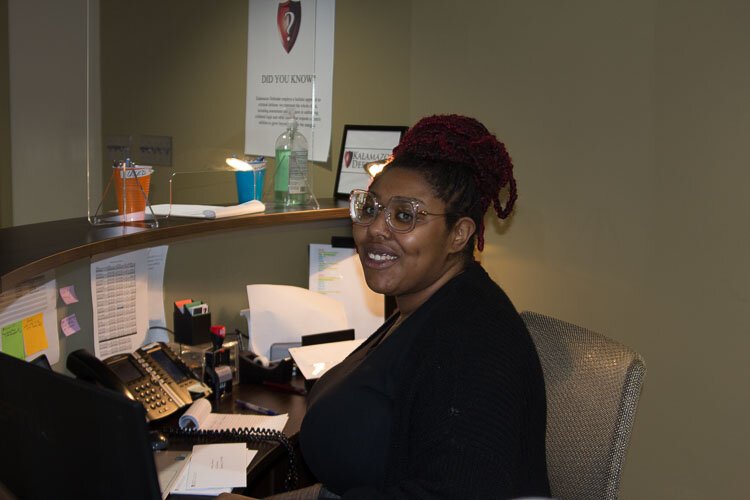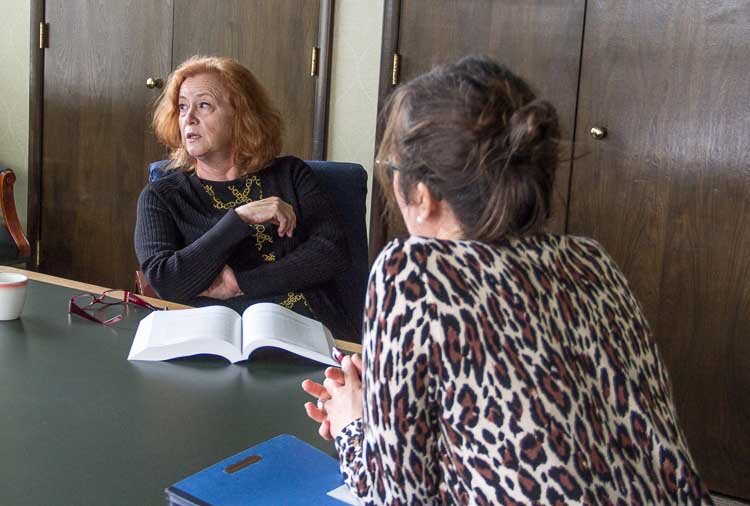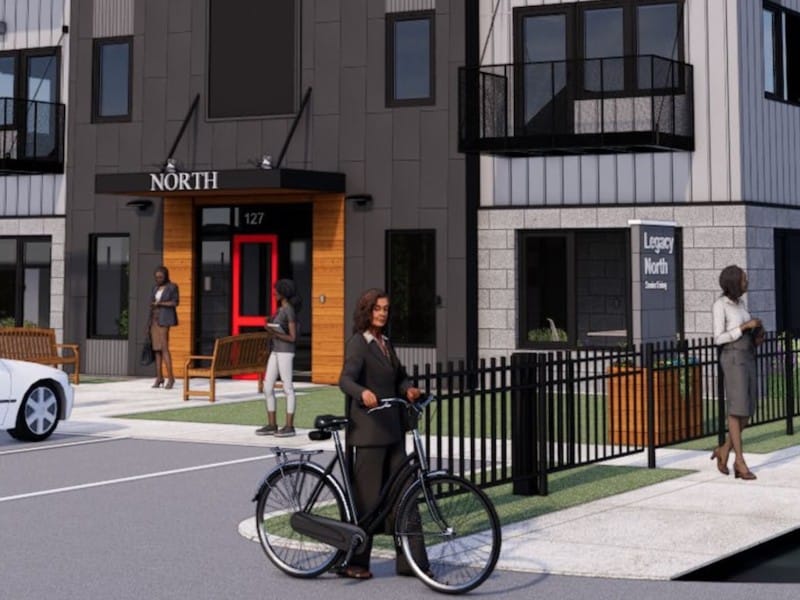… And if you cannot afford an attorney, Kalamazoo Defender has a plan
The 2-year-old nonprofit organization of attorneys in Kalamazoo takes a holistic approach to criminal defense to help defendants in the criminal justice system. It hopes the work is the start of a process to get people who are accused of crimes get on a track out of the system.
Editor’s note: This story is part of Southwest Michigan Second Wave’s On the Ground Kalamazoo series.
What if she wasn’t on drugs? What if his role models weren’t drug dealers?
Why can’t she seem to pay attention to what you’re saying? Why hasn’t he ever had a decent job? And what will it take for either of them to finish school?
Those aren’t the first questions a court-appointed defense attorney explores with his clients. They aren’t questions that any attorney for indigent people may ever ask. But Kalamazoo County Defender Inc. is trying to change that.
The 2-year-old nonprofit organization of attorneys is taking a holistic approach to criminal defense that looks to help defendants and the criminal justice system address such questions. And it hopes that is the start of a process to get people who are accused of crimes on a track that leads out of the system.
“Kalamazoo County has one of the most sophisticated, publicly-funded defenders offices in the nation – blending holistic care with exemplary legal defense,” says Joshua Hilgart, executive director of Kalamazoo County Defender.
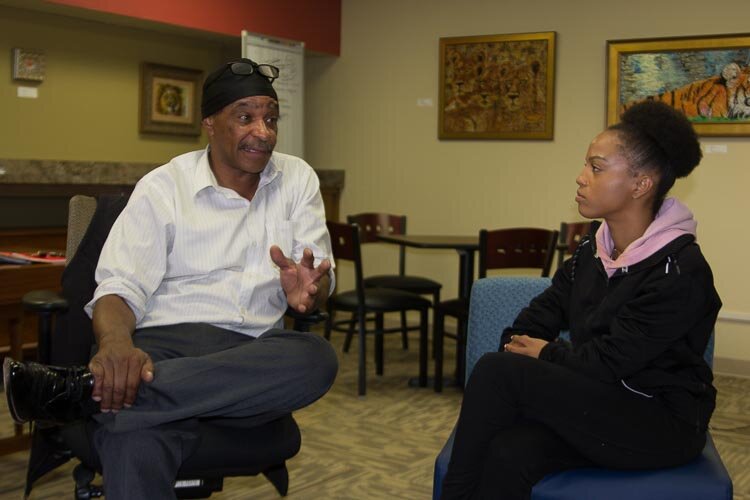
The organization, which does business as Kalamazoo Defender, is contracted by Kalamazoo County and follows guidelines set by the Lansing-based Michigan Indigent Defense Commission. It operates on an annual budget of about $4.2 million, of which about 75 percent is state funding and 25 percent is provided by the county. And it replaces a roster system in which any of a list of independent attorneys were appointed by judges on a rotating basis to defend people who cannot afford legal counsel on their own.
“There was a regular list and people (attorneys) would be on their own,” attorney Keith Turpel says of lawyers appointed to independently represent people in the previous system. “Some were in firms, but pretty much they were on their own. We would help one another. But now it’s a team effort. There’s an actual team here.”
Kalamazoo Defender operates as a firm in which the attorneys are employees of the nonprofit organization.
Turpel, who has been a defense attorney in Kalamazoo for more than 30 years, says many of the lawyers who were part of the previous indigent defense system have gone on to do other things and only a few have continued with Kalamazoo Defender. Some were already part of local law firms and continue to do work in private practice.
Hilgart says inadequate pay was one of the downsides of the old system. Under that system, the first payment to handle a misdemeanor case was, at one time, for instance, $150. It was $400 to $450 for felony matters. That was a concern as lawyers decided how to manage their costs when handling cases that required a lot of time and significantly more work. And they had to request additional compensation from the court as needed.
Attorneys’ per-case compensation under the roster system was good at times, Turpel says, “But attorneys were under-compensated for the most part. When you’re working for a firm, so to speak, there are fewer worries financially I suppose.”
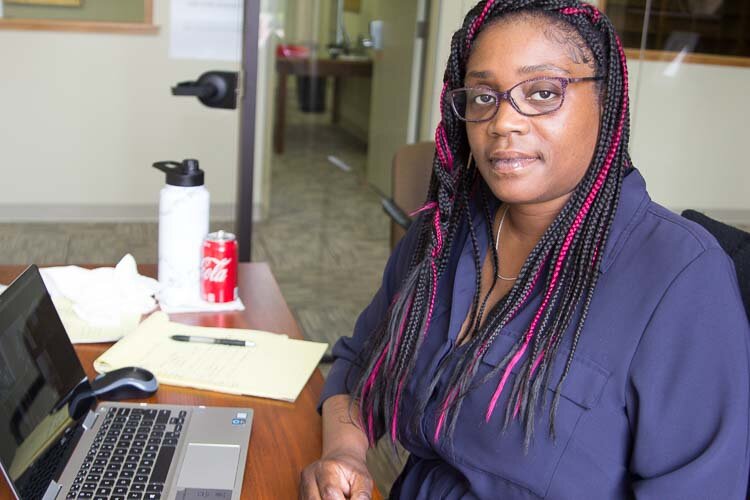
For an attorney to spend more time with a client was disincentivized, Hilgart says, because every contact an attorney made with a client lowered their hourly pay rate. Kalamazoo Defender attorneys are paid an annual salary based on their level of experience, as opposed to being compensated on a case-by-case basis.
“As a practical matter,” Turpel says, “one doesn’t have to worry as much as when you were on your own – paying the bills and worrying where the next check is coming from.”
Hilgart says, “Our attorneys are paid vastly better with benefits and retirement, and administrative support, none of which was provided to them before.”
Based on Kalamazoo Defender’s budget and some 5,000 cases its 22 trial attorneys handled during its first year, Hilgart says the total cost per-case, including overhead, is about $800.
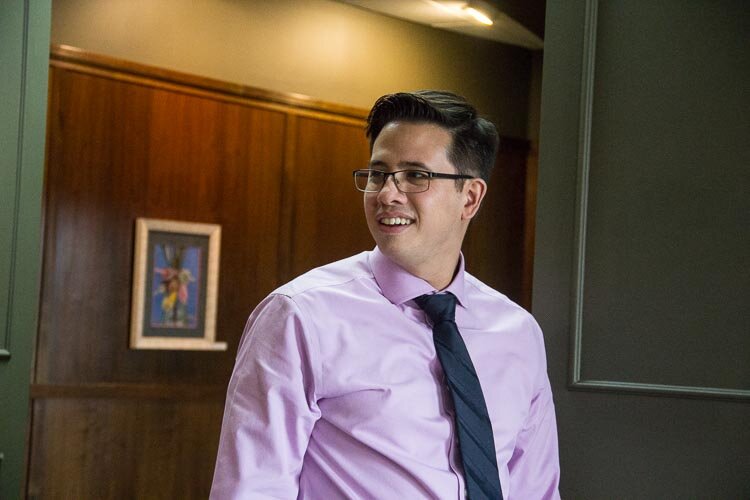
He says the American Bar Association has long estimated that a practicing attorney may handle about 150 felony cases per year or about 400 misdemeanor cases per year, “We are doing at least that.” Its staff expects to be busy as jury trials restart this month (August 2021) after an almost 16-month shutdown due to COVID-19.
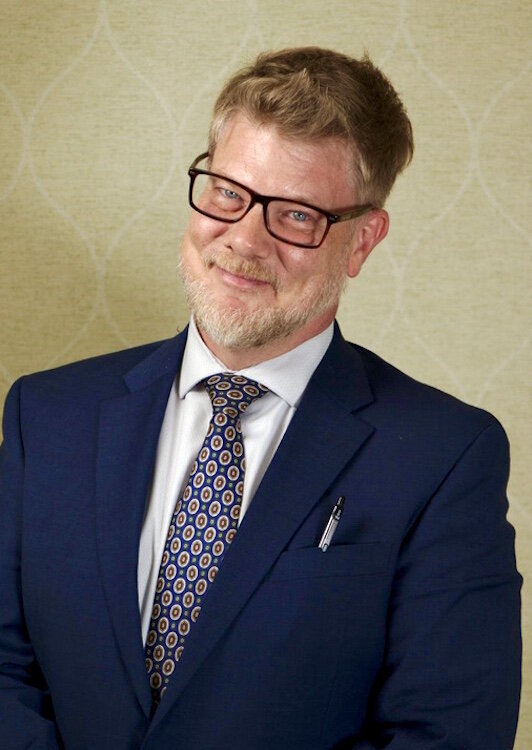
Other downsides of the old system were a lack of administrative support and the need to petition the presiding judge to approve expenditures for additional investigation work to help the defense or additional money to cover the cost of employing expert witnesses. Kalamazoo Defenders is budgeted to cover such costs. And it has a 13-person administrative staff as well as a chief defender, attorney Donna Innes, to supervise and support their efforts.
Attorneys also attend each defendant’s arraignment, the hearing at which he or she is officially charged with a crime. “That is something that never happened before our office was around,” Hilgart says. Prior to that, indigent defendants were on their own and did not have an attorney to provide information about what to expect.
Hilgart says, “We’re really pleased with the way things are going in terms of how our office is developed and what we’ve been able to do.”
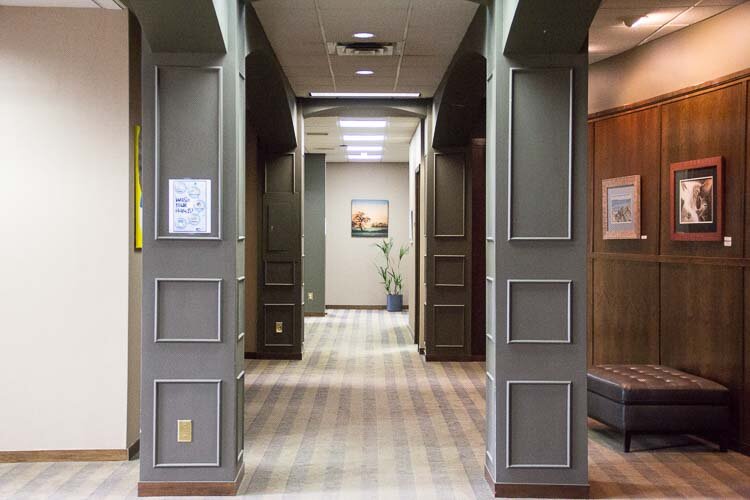
But he expects a key to the organization’s success to be its Village initiative. The “village” is a network of social and human service organizations that are set to try to meet the needs of indigent defendants. That starts with each of them being interviewed by a social worker who is employed by Kalamazoo Defender and who works at its offices in the Comerica Bank Building, 151 S. Rose St.
Jacob Pinney-Johnson, community engagement specialist with Kalamazoo Defenders, says representatives of about 20 human services organizations are expected to participate, each with an intake worker who will have at least part-time hours in space at the Kalamazoo Defender offices.
“Some folks are in the office permanently, five days a week,” Pinney-Johnson says.
They include representatives of Michigan Works, HOPE thru Navigation, Kalamazoo Valley Community College, and Participatory Defense (a collaborative of Michigan United and Emergent Justice).
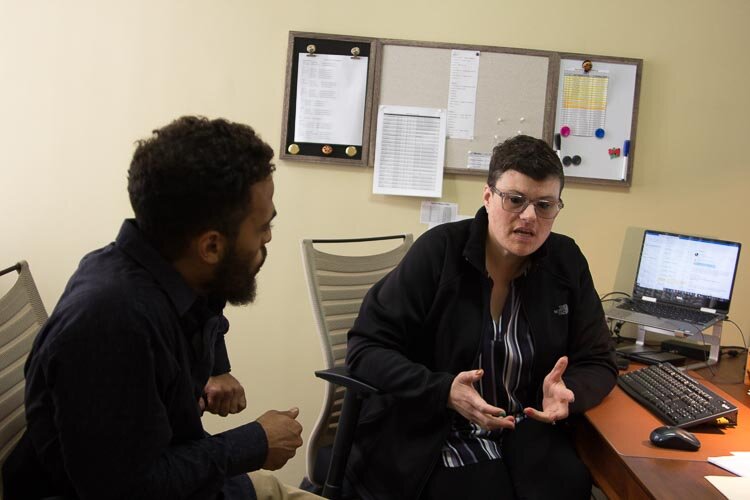
“Other programs and services will be in there on a partial-week basis, a couple of days a week basis,” he says.
Each is expected to help clients with some aspect of their lives, including such things as employment needs, substance abuse treatment, housing, job training and transportation.
Why is all that necessary?
Pinney-Johnson says that holistic approach to criminal defense looks to start the process of getting people on a track that leads them out of the criminal justice system.
“It’s the ideal we should be shooting for,” he says. “What do you think happens when you don’t address the underlying causes of why so many people find themselves in court?”
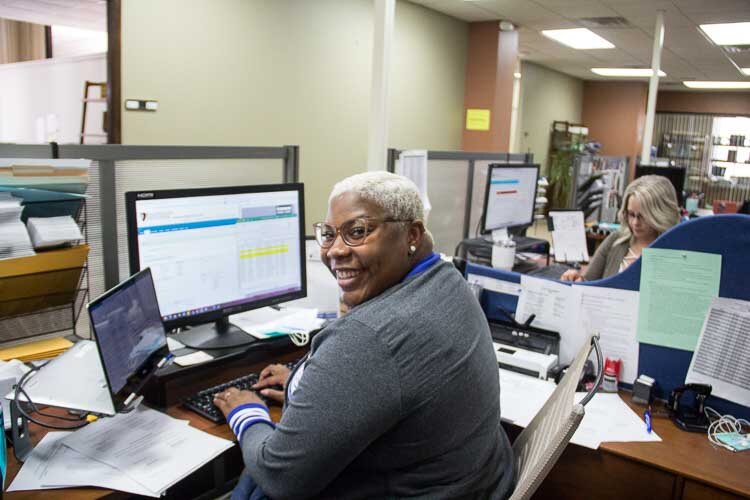
He says the 6th Amendment of the U.S. Constitution guarantees each citizen a public defense. But that wasn’t happening in Michigan, he says.
“There was a lawsuit by the American Civil Liberties Union due to the fact that individuals were not getting adequate legal representation,” he explains. “… And that’s how Kalamazoo Defenders came to be.”
But Pinney-Johnson says, “It’s not enough that we just represent individuals who are living in poverty and who have experienced extreme trauma or who are suffering from mental health issues. … We have to go further and really support them and try to interrupt what brings them to criminal court to begin with.”
Pinney-Johnson is new to the organization after working for about three years for the Urban Alliance’s Momentum program, a workforce development program. He worked as a classroom coordinator for Momentum, working with people who were returning to the community after leaving prison.
“The move to Kalamazoo Defenders for me felt like an opportunity for growth and learning,” says Pinney-Johnson. “But it’s also an opportunity to kind of be a little bit more preventative in terms of our criminal justice system. And kind of getting a little bit more ahead of it.”
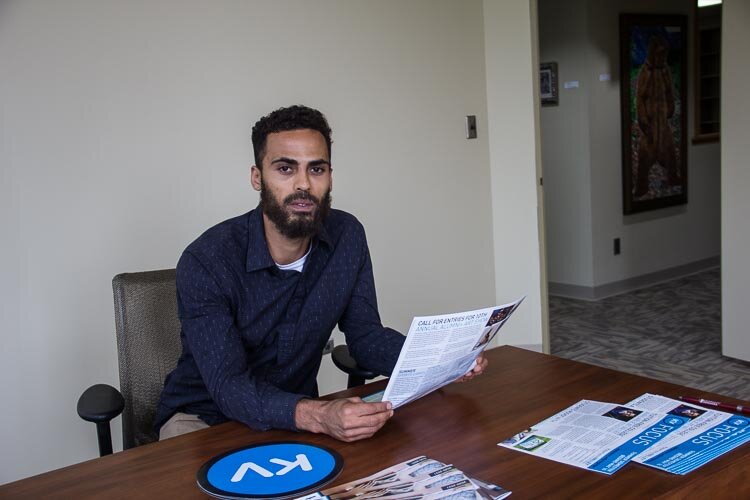
Hilgart is a former staff attorney for Legal Aid of Western Michigan who did public advocacy work for more than 10 years in Washington, D.C.
He has a bachelor’s degree in political science from Shimer College in Illinois and his law degree from Michigan State University.
Hilgart says the Village initiative will help his attorneys have a better understanding of each client and that allow them to come into court suggesting programs and services that may put that client on a better path.
“It permits the attorney to know a whole lot more about their client, where they came from, how they grew up, their challenges,” he says. And as their challenges are addressed, he says defense attorneys “are able to present to the court how the client is taking charge of their own life. There is no other program that I know of that has such an intimate proximity between those processes and the attorney that is representing the client in court.”
“When a wealthy person is charged with a crime, it is not uncommon for his or her attorney to announce from their first court appearance that the client is enrolled in programs that address underlying problems that may have contributed to them being arrested,” Hilgart says. “The attorney begins telling the story of the alcoholism, mental trauma or other circumstances that led his or her client astray.”
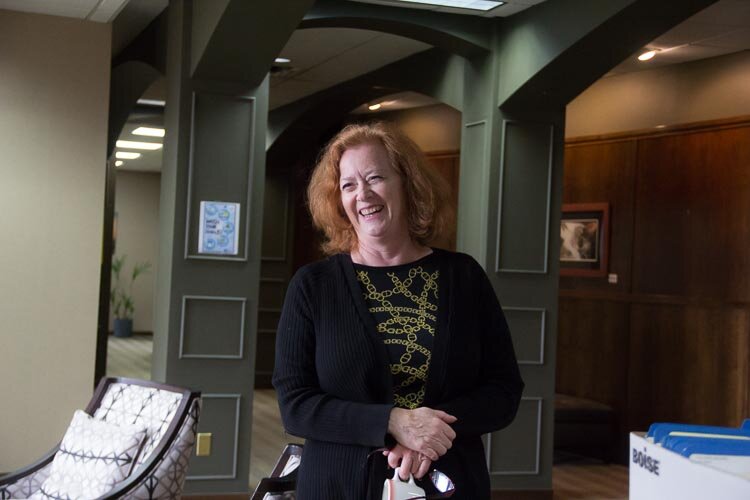
Hilgart says Kalamazoo Defender wants to create that kind of support for its clients.
“Our attorneys are really mission-centered and focused and they’re doing this job because they love it,” he says.
Changing the landscape for defendants
Removing convictions from an individual’s public criminal record — expungement — is also a part of its effort. Michigan’s new Clean Slate law, passed in April, makes it possible for more people to petition for an expungement. And that may ultimately make it easier for them to find full-time employment and create financial stability for their families.
On job applications, school applications and paperwork for new housing, it allows them to legally state they have never been convicted or arrested for that crime.

“We’ve been active with some of the work around expungement,” Pinney-Johnson says. “There’s a new expungement Clean Slate law. And so Kalamazoo Defender is working in partnership with the City (of Kalamazoo), Michigan Works, Kalamazoo County, and the Michigan Attorney General.”
Along with those organizations and Legal Aid of Western Michigan and The Disability Network of Southwest Michigan, the organization of defense attorneys sponsored an expungement fair on Aug. 20 in Bronson Park. As a result, 97 people are being set for court dates to hear their cases.
The expungement fair allowed people with criminal records – misdemeanor or felony – to begin the process to see if they are eligible for expungement. It allows representatives of Michigan Works, which has taken on the administration of the Clean Slate initiative, and the Attorney General’s office to check to see if an offense qualifies for expungement.
That process started before the event, with people filling out and submitting surveys online. Those with potential for success met with reps at Bronson Park to fill out additional paperwork and provide fingerprints for proper identification. A court date was set for those cases with the potential for successful expungement.
Those interested in more information may contact Kalamazoo Defender or the Michigan Works Expungement support staff at 269-250-5031 or go directly to Michigan Works intake page here.


